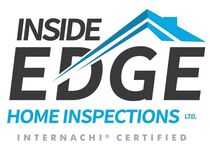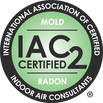Mike's Home Inspector BlogMichael Burfitt |
|
I am now entering my third year running an independent home inspection company and what a fun ride it has been! I can now confidently say that every home is different, no two homes are alike and one of the most exciting parts of being a home inspector is discovering something new. It is always fun to see a unique feature of a home and to see things that we previously have only seen during training.
However, there are some things that are the same on every inspection and while no two inspector’s skill or background is the same there are some things every inspector should know. It always comes off as a shock when I tell clients that there are zero home inspection regulations in Nova Scotia, and anyone can legally call themselves a home inspector in a week or two. Here is a sample of some questions a home inspector should be able to confidently answer after every inspection. Does This Home Have Concerning Electrical Issues? While we are not electricians, home inspectors should be able to detect most major electrical issues. They include:
What Are the Major Plumbing Materials? Most homes I inspect use copper pipe to bring service in from the street, cross-linked polyethylene (PEX) for distribution and plastic, and either ABS (black) or PVC (white) for wastewater. An inspector should be aware of materials that may or may not be a concern such as:
Does The Home Have Potential Water Infiltration Issues? There is a common phrase I use which is “water is the #1 enemy of homes” and biggest concern I get called about is moisture and the damage it has caused. A home inspector should know that water has many ways to enter a home and some of the many signs of water damage. Like many home inspectors, I use a number of tools as well as all my senses to look for signs of either active or potential water infiltration into the home. While we don't have X-ray vision and leaks can be very difficult to detect, a home inspector should be aware of the various ways unwelcome ways water can enter a home. These are just some baseline areas that all home inspectors should be able to confidently speak of. While we are generalists, not specialists we should have a strong enough knowledge to identify the majority of home defects. Your inspector should answer these three questions either verbally or in a report. Did you know that your home has at minimum, not one but two plumbing systems that need to be kept completely separate? They are:
Most homes in the Halifax core are connected to Halifax Water and one of its 2 large (Pockwock & Lake Major) supply plants. It is supplied to homes in various pipes with the biggest concern being lead pipes. If your home was built before 1960 and is located on the Halifax peninsula or Dartmouth inside Highway 111 there is a chance you have lead pipes and should have them inspected. Other concerns for the home inspector are homes that use the following types of supply pipe: Galvanized Steel The main issue with this type of supply pipe is its age. As it has not been widely manufactured for over 60 years, the 40-to-50-year life expectancy has long since passed. The other main problem with this type of plumbing is that they will rust from the inside out, leading to low pressure, rusty water, and ruptured pipes. These pipes should be replaced as soon as possible. Polybutylene (PB) and/or Kitec (PEX-AL-PEX) There have been large class action lawsuits field against the manufacturers of both products alleging that they have an unacceptably high failure rate. While the internet is full of horror stories in my experience there have been very few problems with both types of pipe here in Canada and are usually the result of poor fittings. The main concerns are that if these pipes fail, they tend to catastrophically burst rather than leak and that some insurance companies refuse to insure homes with these types of pipes without some form of mitigation, up to complete replacement. I touched upon Kitec in a previous article and this type of piping is usually used in heating systems with PB a popular choice for water supply in the 1990s. With all that out of the way, what is a good type of pipe to use? Generally, two main types are used today: Copper (usually Type L) and Plastic (usually PEX or Cross-Linked Polyethylene). There are pros and cons to all these types of piping and a qualified contractor can advise on the best option for your home. It is very important that supply piping be kept separate from DWV piping as this can lead to serious, even fatal cross contamination. The biggest issue I see is homeowners leaving garden hoses connected when not in use: this can lead to outside water being drawn into the potable water supply and they should be disconnected when not in use. As home and property inspectors, we are always looking out for potential major issues for our clients. Often times this results in reporting on such visible issues as a diagonal crack indicating potential foundation issues, burn marks on curtains or electrical receptacles, and missing shingles indicating a potential roof leak. While these are important to all home inspectors, we also look for other potential issues that are not so apparent to homeowners, buyers and sellers. Here is an example of a potential major issue from a recent home inspection.
To the naked eye this appears to be a group of pipes, likely for hot water due to the orange colour. They also appear to be professionally installed and in good shape overall: both of these observations are correct but that does not tell the whole story. Before we get ahead of ourselves, let me explain what this is and why it could be a potential financial pit for buyers, a sales obstacle for sellers and a major cost for current homeowners. What you are looking at is the manifold for a hydronic (hot water) heating system, where it is distributed to the various zones (rooms) in the home. The system itself is well maintained and in good condition however it is composed of a PEX-AL-PEX pipe, otherwise known as Kitec plumbing. So, what exactly is wrong with Kitec? The short answer to this is that it depends on who you talk to. Some plumbers claim that with its high failure rate, tendency to burst rather than leak when failing and that it is no longer available are all reasons to immediately replace all Kitec plumbing with a more acceptable solution such as copper or cross-linked polyethylene (PEX). Others will argue that the issue is drastically overblown and as long as it is maintained it is no riskier than any other material. At Inside Edge, we are in the business of providing facts to our clients so they are able to make the optimal real estate decision and representing the condition of the home as best we can. On that note, here are some facts about Kitec:
It is generally recommended that a plumbing contractor evaluate any system containing Kitec due to its tendency to fail catastrophically. Any home inspector or plumber can check for visible Kitec on any home you are considering purchasing or putting up on the market and advise accordingly. |
Archives
July 2024
Categories
All
|
|
Inside Edge Home Inspections Ltd.
Halifax, NS 902-209-9921 [email protected] Proudly Serving the HRM & Central Nova Scotia |


 RSS Feed
RSS Feed

